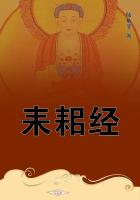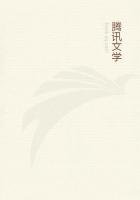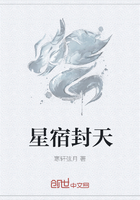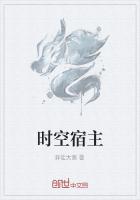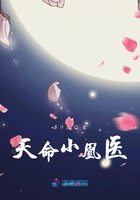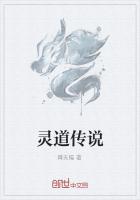"It's got suthin to do with this discovery," said Parkhurst, in a low, mysterious tone, "but as far as the gold goes, and our equal rights to it as partners, it don't affect them. If I," he continued in a slightly patronizing, paternal tone, "choose to make you and the other boys sharers in what seems to be a special Providence to ME, I reckon we won't quarrel on it. It's a mighty curious, singular thing. It's one of those things ye read about in books and don't take any stock in! But we've got the gold--and I've got the black and white to prove it--even if it ain't exactly human."His voice sank so low, his manner was so impressive, that despite his known exaggeration, Bray felt a slight thrill of superstition.
Meantime Parkhurst wiped his brow, took a folded slip of paper and a sprig of laurel from his pocket, and drew a long breath.
"When I got to the spring this afternoon," he went on, in a nervous, tremulous, and scarcely audible voice, "I saw this bit o' paper, folded note-wise, lyin' on the ledge before it. On top of it was this sprig of laurel, to catch the eye. I ain't the man to pry into other folks' secrets, or read what ain't mine. But on the back o' this note was written 'To Jack!' It's a common enough name, but it's a singular thing, ef you'll recollect, thar ain't ANOTHER Jack in this company, not on the whole ridge betwixt this and the summit, except MYSELF! So I opened it, and this is what it read!" He held the paper sideways toward the leaping light of the still near camp-fire, and read slowly, with the emphasis of having read it many times before.
"'I want you to believe that I, at least, respect and honor your honest, manly calling, and when you strike it rich, as you surely will, I hope you will sometimes think of Jill.'"In the thrill of joy, hope, and fear that came over Bray, he could see that Parkhurst had not only failed to detect his secret, but had not even connected the two names with their obvious suggestion.
"But do you know anybody named Jill?" he asked breathlessly.
"It's no NAME," said Parkhurst in a sombre voice, "it's a THING!""A thing?" repeated Bray, bewildered.
"Yes, a measure--you know--two fingers of whiskey.""Oh, a 'gill,'" said Bray.
"That's what I said, young man," returned Parkhurst gravely.
Bray choked back a hysterical laugh; spelling was notoriously not one of Parkhurst's strong points. "But what has a 'gill' got to do with it?" he asked quickly.
"It's one of them Sphinx things, don't you see? A sort of riddle or rebus, you know. You've got to study it out, as them old chaps did. But I fetched it. What comes after 'gills,' eh?""Pints, I suppose," said Bray.
"And after pints?"
"Quarts."
"QUARTZ, and there you are. So I looked about me for quartz, and sure enough struck it the first pop."Bray cast a quick look at Parkhurst's grave face. The man was evidently impressed and sincere. "Have you told this to any one?"he asked quickly.
"No."
"Then DON'T! or you'll spoil the charm, and bring us ill luck!
That's the rule, you know. I really don't know that you ought to have told me," added the artful Bray, dissembling his intense joy at this proof of Eugenia's remembrance.
"But," said Parkhurst blankly, "you see, old man, you'd been the last man at the spring, and I kinder thought"--"Don't think," said Bray promptly, "and above all, don't talk; not a word to the boys of this. Stay! Give me the paper and the sprig. I've got to go to San Francisco next week, and I'll take care of it and think it out!" He knew that Parkhurst might be tempted to talk, but without the paper his story would be treated lightly. Parkhurst handed him the paper, and the two men returned to the camp-fire.
That night Bray slept but little. The superstition of the lover is no less keen than that of the gambler, and Bray, while laughing at Parkhurst's extravagant fancy, I am afraid was equally inclined to believe that their good fortune came through Eugenia's influence.
At least he should tell her so, and her precious note became now an invitation as well as an excuse for seeking her. The only fear that possessed him was that she might have expected some acknowledgment of her note before she left that afternoon; the only thing he could not understand was how she had managed to convey the note to the spring, for she could not have taken it herself. But this would doubtless be explained by her in San Francisco, whither he intended to seek her. His affairs, the purchasing of machinery for their new claim, would no doubt give him easy access to her father.
But it was one thing to imagine this while procuring a new and fashionable outfit in San Francisco, and quite another to stand before the "palatial" residence of the Neworths on Rincon Hill, with the consciousness of no other introduction than the memory of the Neworths' discourtesy on the mountain, and, even in his fine feathers, Bray hesitated. At this moment a carriage rolled up to the door, and Eugenia, an adorable vision of laces and silks, alighted.

